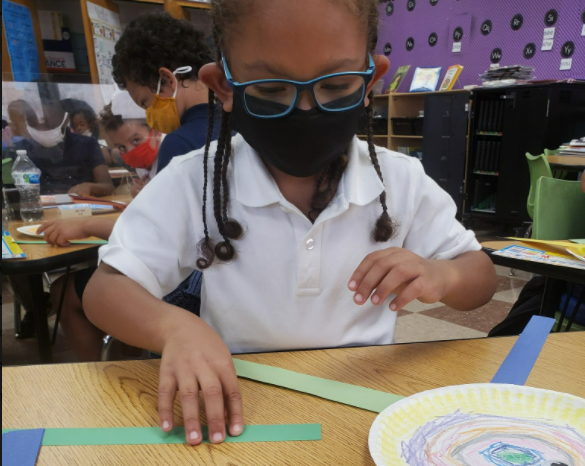
Editor’s note: reimaginED guest bloggers Walter Blanks Jr. and Nathan Cunneen, who serve as press secretary and communications associate, respectively, for the American Federation for Children, recently had the chance to see the inner workings of several charter, private and virtual schools in Pennsylvania. Their visits came courtesy of an AFC partnership with the Pennsylvania Coalition of Public Charter Schools, the Commonwealth Foundation, and Harrisburg Families United. In this post, Cunneen reports on what he saw at one of those schools during the “Stronger Together Tour.”
The first stop on our tour was a visit to Penn Hills Charter School for Entrepreneurship. Penn Hills serves more than 400 students from more than 10 school districts in the Pittsburgh area.
A key component of Penn Hills is its Advancing Youth Initiative, which supports students’ health, welfare and education, and serves as the school’s philanthropic arm, seeking and accepting donations and resources to help each student reach his or her full potential.
Penn Hills pledges to educate its students using an innovative, hands-on, engaging curriculum grounded in entrepreneurship and aligned to Pennsylvania Common Core standards. The curriculum is designed to bring entrepreneurial and economic concepts alive for students; basic economic and entrepreneurial concepts are embedded in lessons connected to science, math, social studies, and English language arts.
To learn more about what this means in practice, Walter and I attended a discussion panel with Penn Hills CEO Wayne Jones and board president Tricia Shelton, who explained that their vision is to educate the future leaders of their community and the country. They do this by investing in students and focusing on CARE – Character, Academics, Relationships and Entrepreneurship – so those young people will be prepared to successfully go out into the world.
Penn Hills creates an environment where all students are learning real-world skills that will serve them for the rest of their lives, Jones and Shelton said. While students aren’t forced to become entrepreneurs, they are required to learn skills that will prepare them for whatever career path they choose.
Kindergarteners at Penn Hills, for example, are introduced to resume writing. You might wonder what kind of a resume a kindergartener could have. What Walter and I learned from Jones and Shelton is that it’s not about what the student puts on paper so much as that he or she is being exposed to the concept at such a young age.
We also learned from these innovative leaders that Penn Hills Charter School of Entrepreneurship follows the national MicroSociety model, created in 1967, that introduced the idea of creating a functioning miniature society into classrooms to bring relevance to learning and to teach individual responsibility.
Penn Hills holds the distinction of being the first MicroSociety school to open with only a kindergarten to second grade student cohort. Since then, the school has grown to serve kindergarteners through eighth-graders, challenging students more as they age.
By the time students graduate, each has fulfilled the requirement to produce a concrete business plan.
You can learn more about Penn Hills by reading its strategic plan here.


